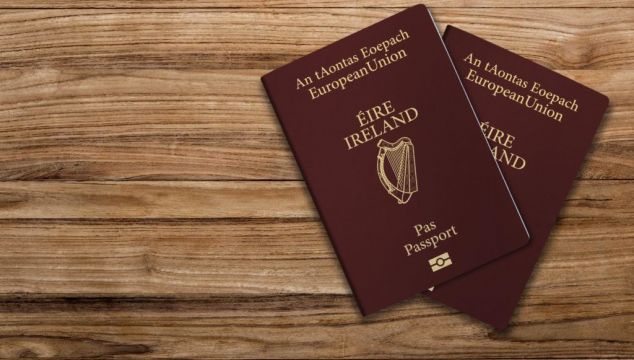A three-year-old child born in this State to a mother with subsidiary protection is not entitled to an Irish passport, the High Court has ruled.
Ms Justice Marguerite Bolger said it was open to the Minister for Foreign Affairs to find the boy does not meet the requirements as his mother’s period of residence in the State was and is restricted.
The child’s mother had subsidiary protection at the time of his birth and has since had this protection renewed.
This type of permission to remain can be given to people who are not entitled to refugee status but for whom the International Protection Office considers there are substantial grounds for believing they would face a real risk of suffering serious harm if returned to their home country.
The boy was refused a passport on the basis that a subsection of section 6A(1) of the Irish Nationality and Citizenship Act of 1956 does not cover people with subsidiary protection as they are not entitled to reside in the State without any restriction on their period of residence.
The child, through his mother, asked the High Court to judicially review the refusal.
Section 6A(1) of the 1956 Act says a person born on the island of Ireland “shall not be entitled” to Irish citizenship unless their parent has, during the four years immediately preceding the birth, been resident on the island for not less than three years.
A subsection of this qualifies that section 6A(1) does not apply to a person born on the island who has at least one parent entitled to reside in the State without restriction on their residence.
The mother submitted there was no restriction on her period of residence as it was renewable and “not in any way curtailed by time”.
The Minister for Foreign Affairs and the Minister for Justice countered that a right of residence on foot of subsidiary protection is provisional and contingent on the continuation of circumstances, outside of the recipient’s control, that justified the initial grant.
They submitted that the State has lawfully chosen to treat its citizens and people with subsidiary protection differently regarding citizenship rights for their children born in the State.
The Ministers urged the court to take into account the child’s right to seek naturalised citizenship through his or his parents’ period of reckonable residence in the State for three years.
The judge said the entitlement to apply for citizenship via reckonable residence was not relevant to the issues before her.
Citizenship by birth is as “close to an absolute right as could be contemplated as existing in Irish law”, while citizenship by naturalisation is a “lesser right” as it can be revoked, she said.
“The right to claim citizenship and all of the protections and entitlements that go with it is one of the most significant rights that a person can assert and claim from the State and the basis on which this right can be asserted must be clear,” the judge said.
Ms Justice Bolger found that a Court of Appeal ruling submitted to her, which is binding on the High Court, did not establish an “open-ended right of residence” for a person with subsidiary protection.
The mother’s right to renew her permission to reside in the State via her grant of subsidiary protection “is and always was for a temporally restricted permission of a period less than three years subject to conditions, the judge said.
She refused the application.







